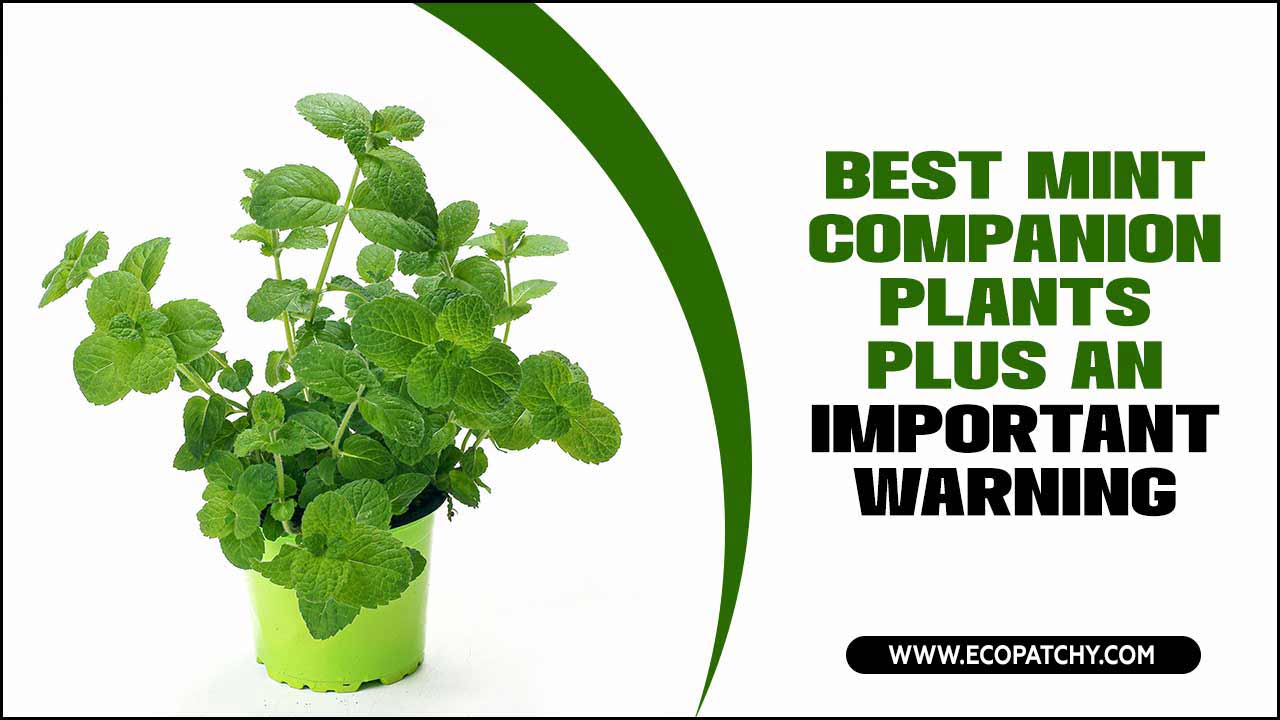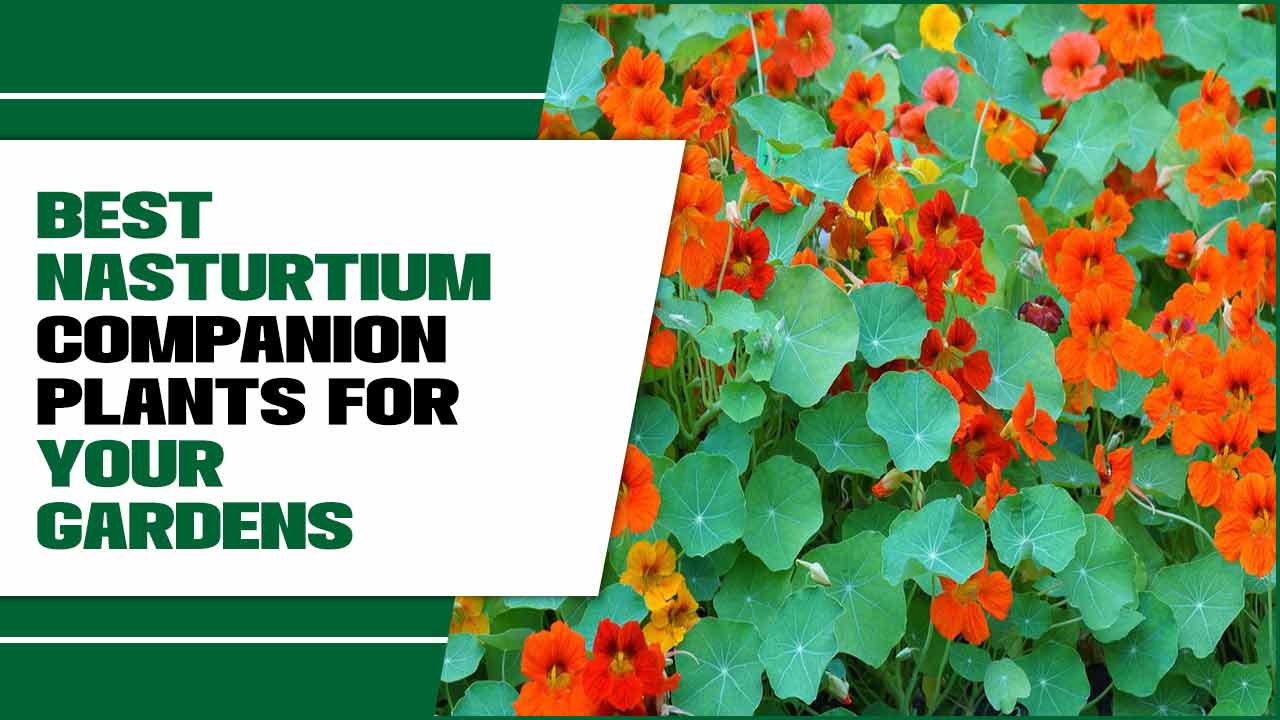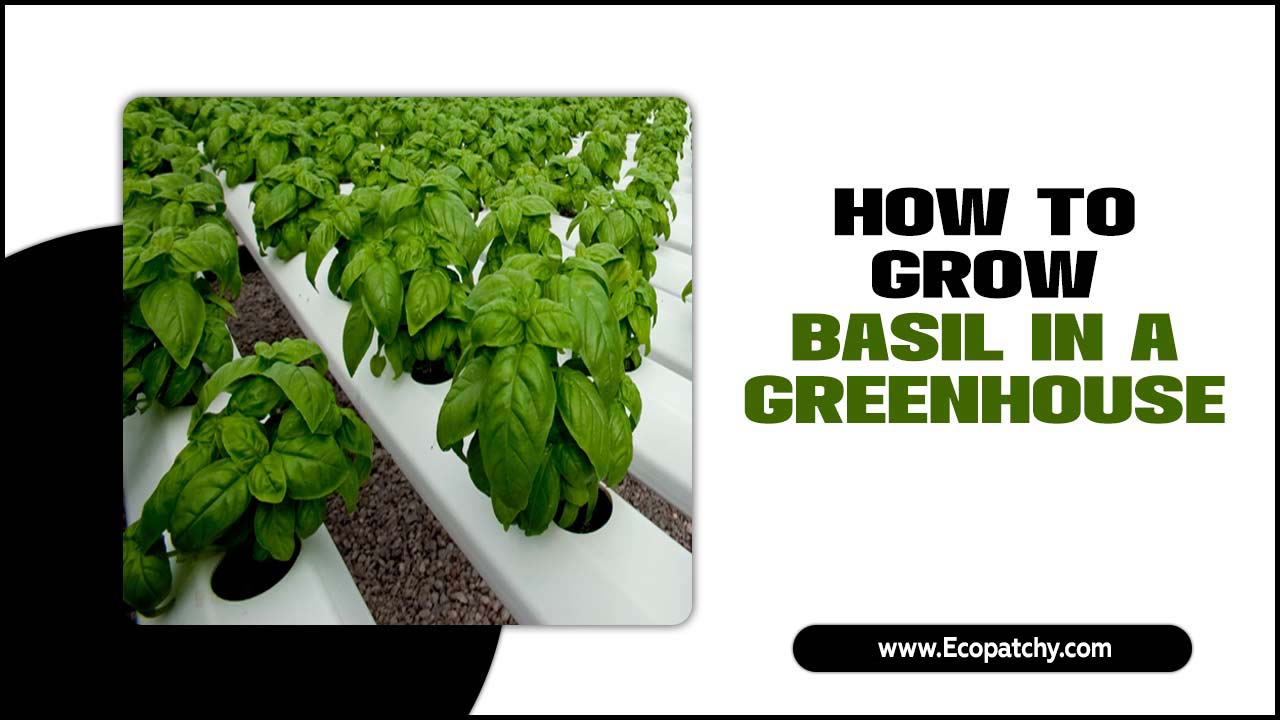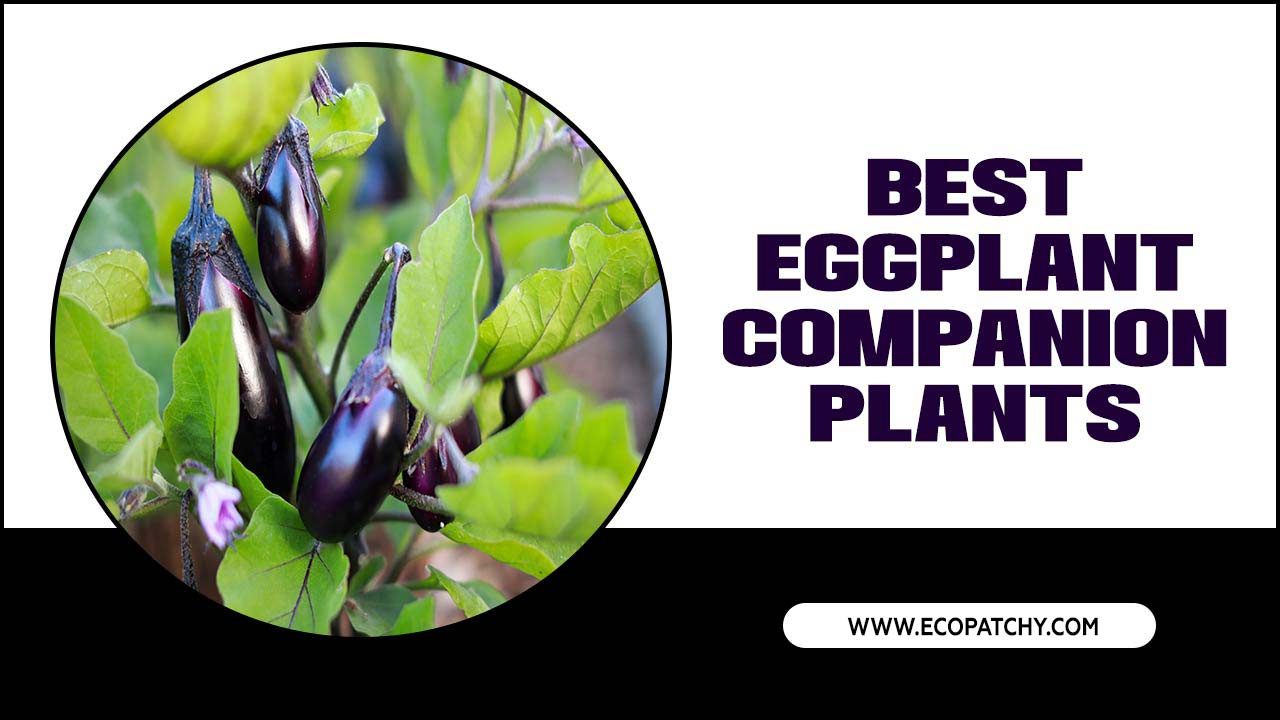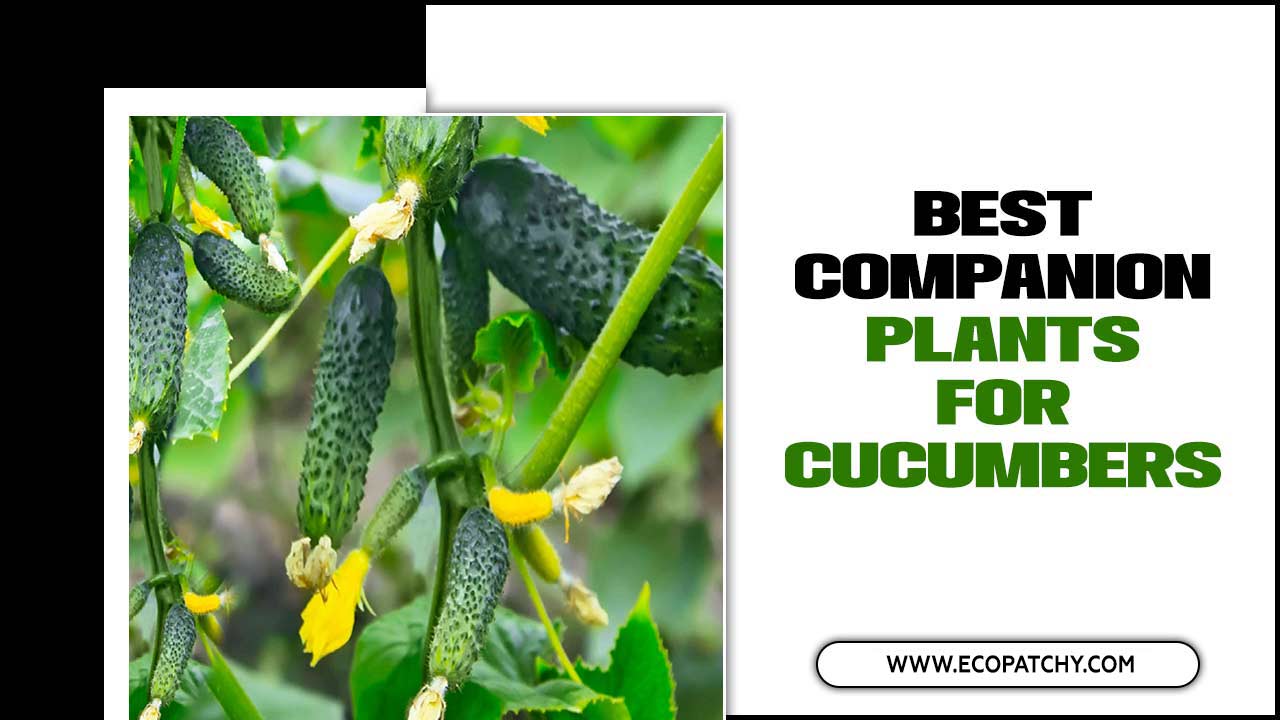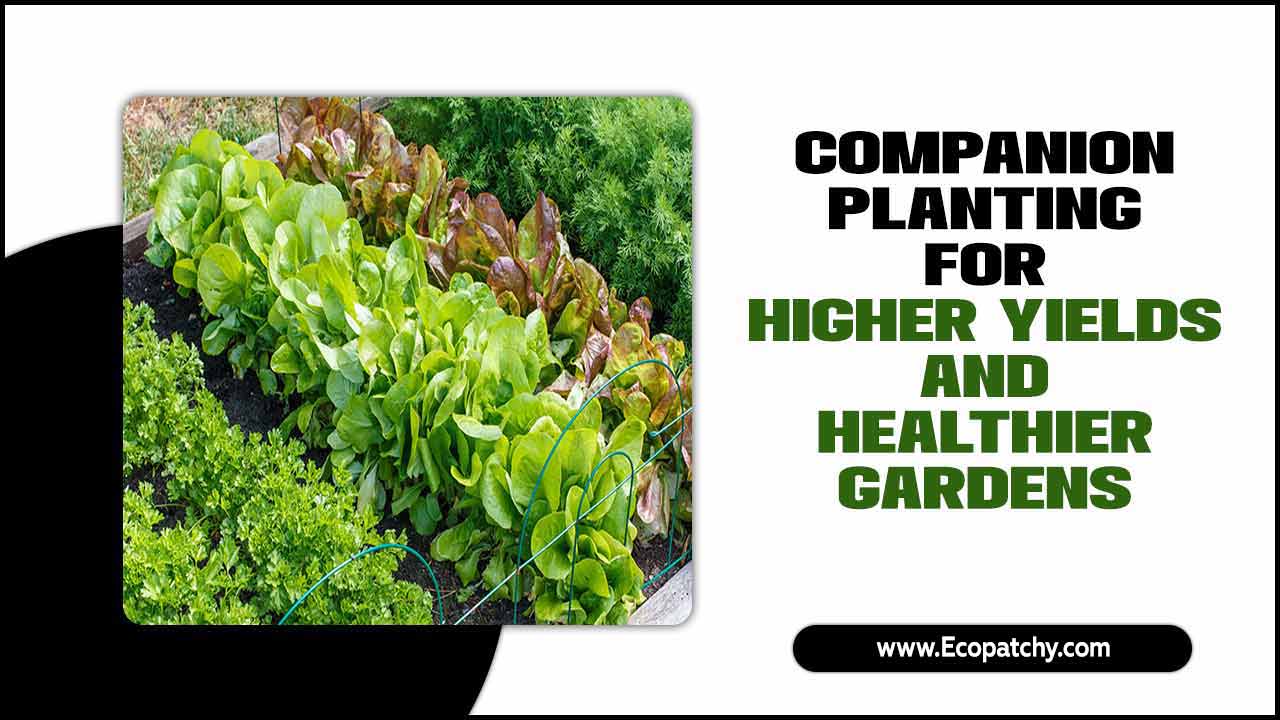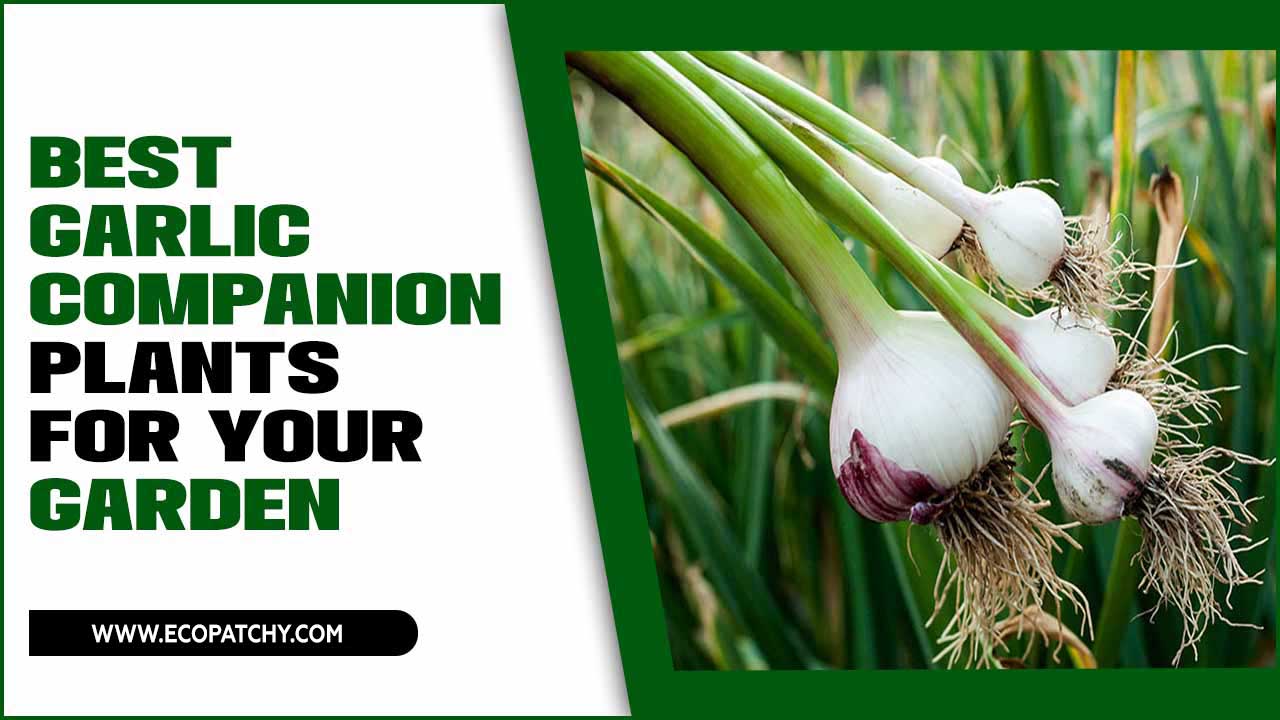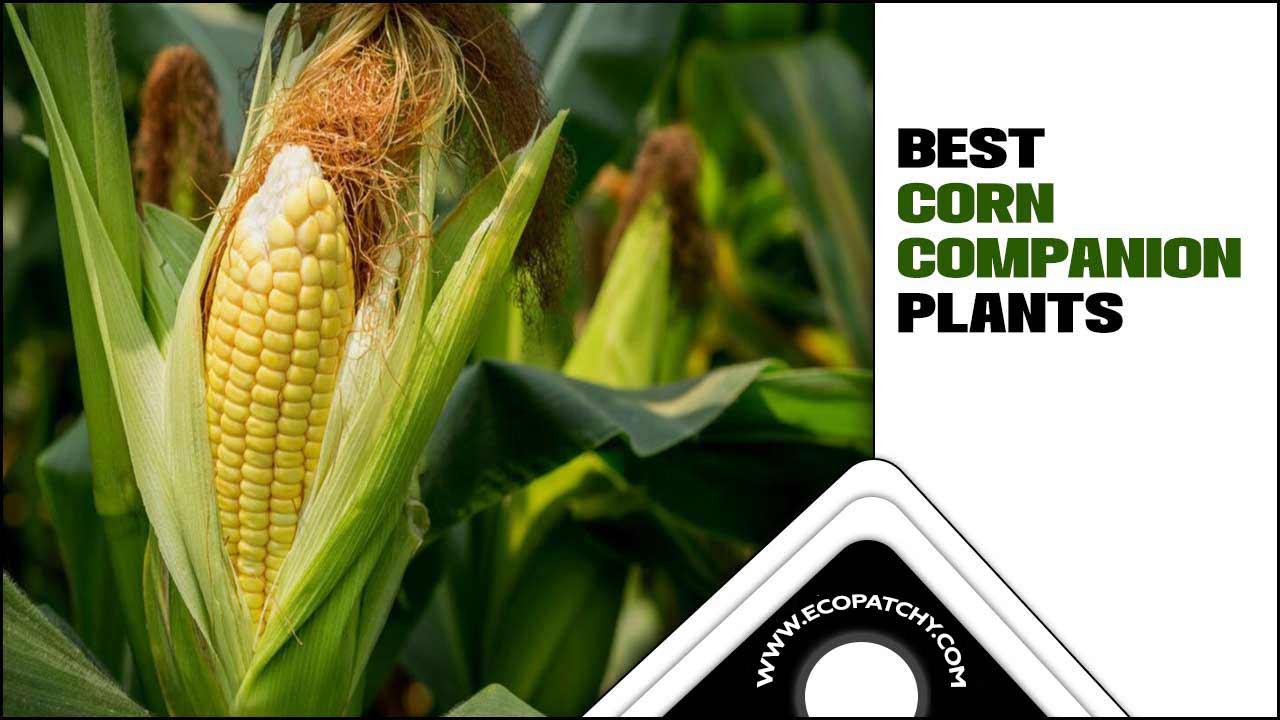Having a garden full of lush, healthy plants is a dream for every gardener. However, achieving this can be a challenging task, especially when it comes to choosing the right companion plants. One of the most popular and versatile herbs to grow in your garden is basil.
Not only does it add flavor to your dishes, but it also has numerous medicinal properties. But did you know that planting basil alongside certain companion plants can enhance its growth and flavor?
We will explore the best basil companion plants for your garden. We will discuss the benefits of companion planting, as well as the specific plants that pair well with basil. Whether you are a seasoned gardener or just starting, this guide will help you create a thriving and harmonious garden with the perfect basil companions.
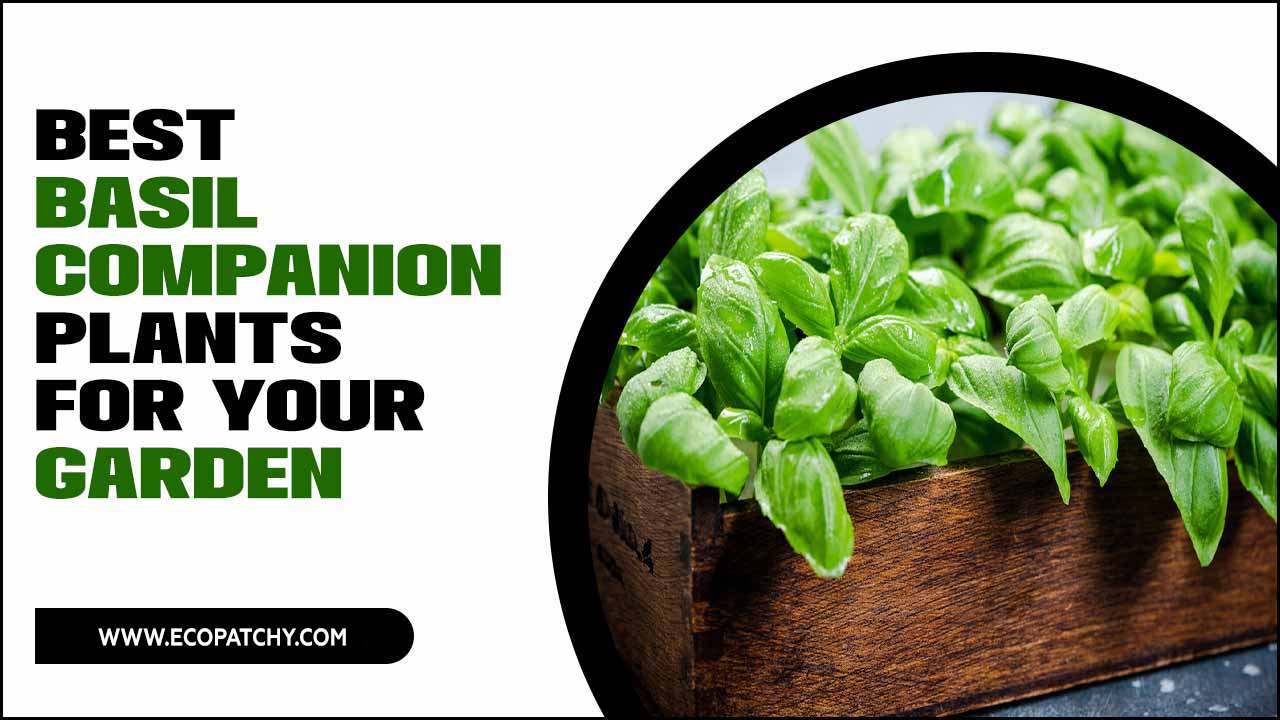
What Is Companion Planting?
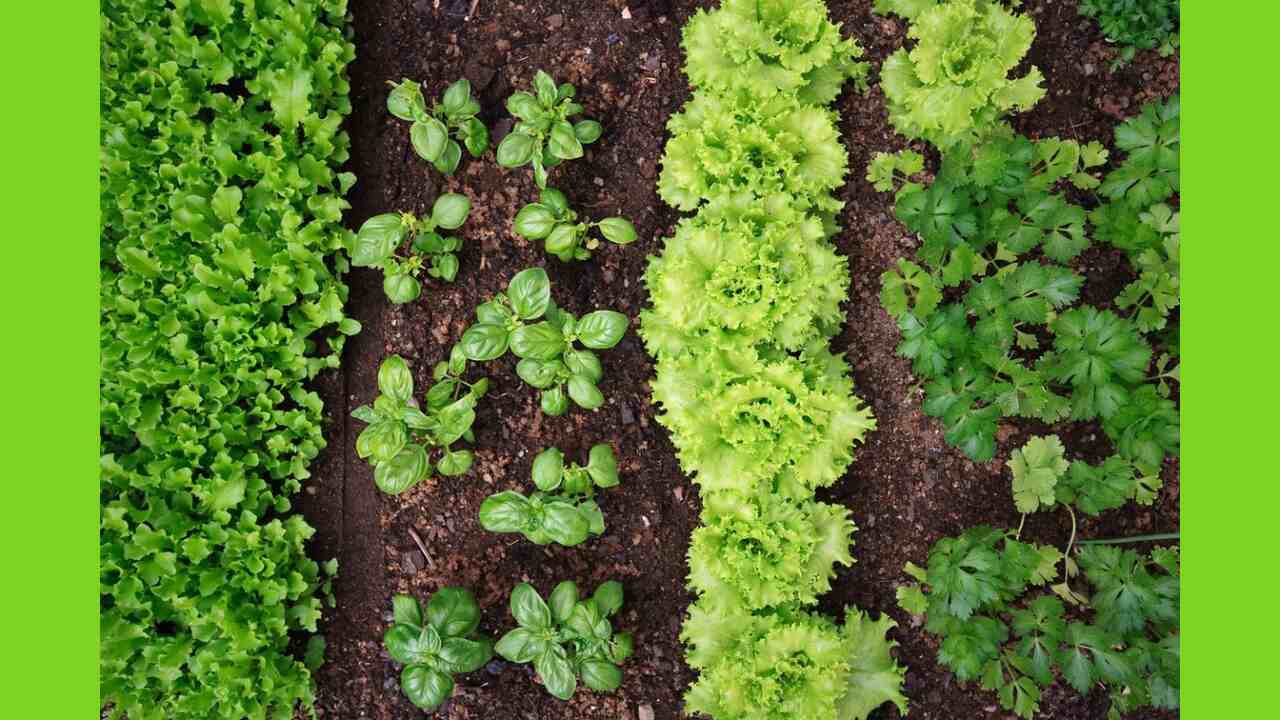
Companion planting, also known as intercropping, is a gardening technique that involves planting different types of plants in close proximity to enhance their growth and health. This practice is based on the principle that certain plants have mutually beneficial effects on each other when grown together.
The concept of companion planting has been used for centuries by gardeners and farmers around the world to maximize yields, control pests, and improve soil fertility. The idea behind companion planting is that certain plant combinations create a symbiotic relationship, where one plant provides support or protection to another. For example, the classic combination of tomatoes and basil is not just a culinary match made in heaven but also a beneficial pairing in the garden.
13 Best Basil Companion Plants For Your Garden
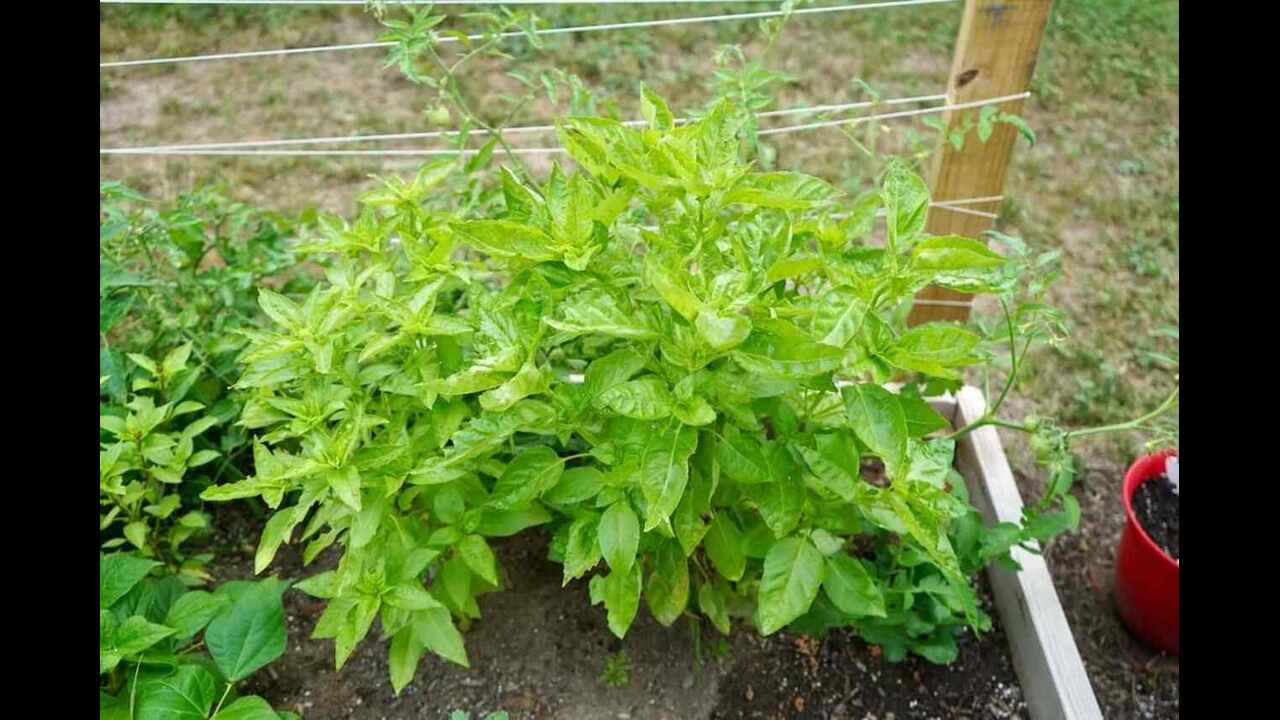
Knowing the best basil companion plants for your garden is of utmost importance for a successful and thriving gardening experience. Basil, a popular culinary herb known for its aromatic leaves and versatile uses in various cuisines, can greatly benefit from strategic plant pairings. By selecting the right companion plants, you can enhance the growth and flavor of your basil while promoting a healthy and balanced ecosystem within your garden.
1.Asparagus
When planning your garden, it’s important to consider the best companion plants to ensure a successful and thriving environment. Asparagus, a popular vegetable known for its delicate flavor and numerous health benefits, can greatly benefit from the company of specific plants, with basil being one of the top choices.
Basil, with its aromatic leaves and versatile culinary uses, is the perfect companion plant for asparagus due to its natural ability to repel pests. Asparagus, being susceptible to pests such as aphids and nematodes, can benefit from the presence of basil, which acts as a natural deterrent. Additionally, basil’s strong fragrance can help mask the scent of asparagus, making it less attractive to pests.
2.Borage
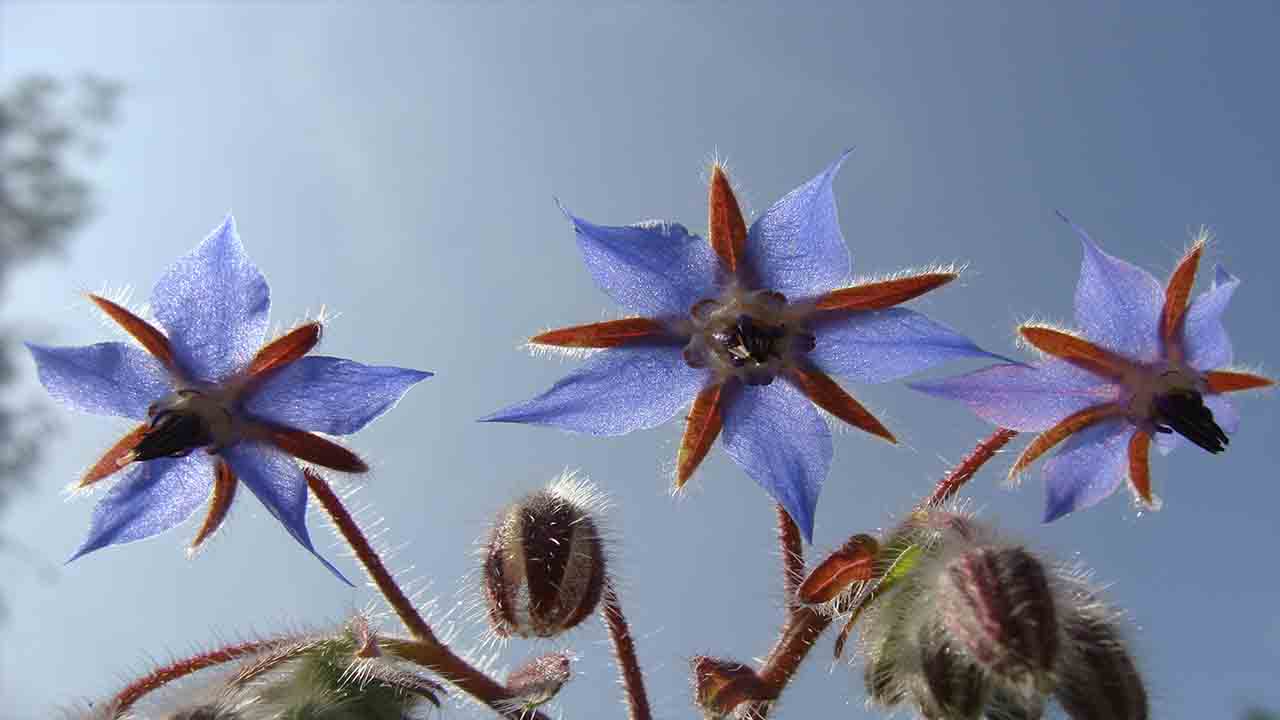
One such beneficial companion plant for basil is borage. Borage, also known as starflower, is a versatile herb that offers numerous advantages when grown alongside basil. Borage is known for its beautiful blue flowers, which not only add visual appeal to the garden but also attract pollinators such as bees and butterflies.
This is particularly beneficial for basil, as the presence of pollinators increases the chances of successful pollination and a higher yield of basil crops. Additionally, borage acts as a natural pest deterrent, repelling harmful insects such as tomato hornworms and cabbage worms. This helps to protect the basil plants from potential damage, promoting their overall health and growth.
3.Chamomile
Regarding to cultivating a thriving garden, choosing the right companion plants can make all the difference. One combination that has proven to be highly effective is pairing basil with chamomile, oregano, and chives. These plants not only enhance the growth and flavor of the basil but also provide numerous benefits to the overall garden ecosystem.
Chamomile, with its delicate white flowers and soothing fragrance, is an excellent companion plant for basil. Not only does chamomile attract beneficial insects like bees and butterflies, but it also acts as a natural pest repellent. Its strong scent deters pests such as aphids and mosquitoes, ensuring the health and vitality of the basil.
4.Marigolds
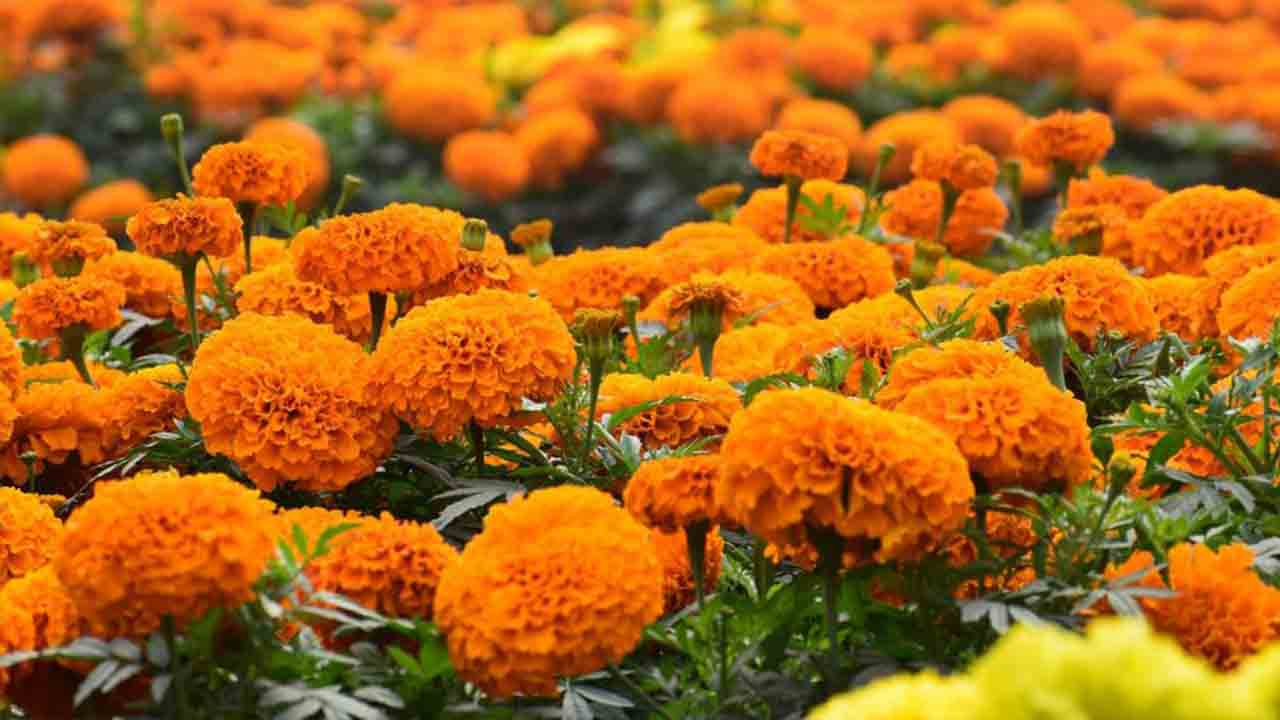
Regarding the pairing of marigolds and basil. Marigolds, with their vibrant colors and strong scent, not only add beauty to the garden but also serve as a natural deterrent for pests. Their strong aroma helps to repel insects, making them an excellent companion for basil, which is often targeted by pests such as aphids and whiteflies.
Basil, on the other hand, not only complements marigolds aesthetically but also benefits from their presence. Marigolds act as a natural pest control measure, keeping harmful insects at bay and allowing basil to thrive without the need for chemical interventions.
Additionally, marigolds attract beneficial insects like ladybugs and lacewings, which feed on pests that can damage the basil plants. This symbiotic relationship between marigolds and basil creates a healthy and balanced ecosystem within the garden.
5.Peppers
Regarding gardening, it is essential to choose the right companion plants to maximize the growth and health of your crops. One such combination that has gained popularity is planting peppers alongside basil. Peppers, known for their vibrant colors and spicy flavors, thrive when planted alongside basil, which acts as an excellent companion plant.
Basil, with its strong aroma and natural repellent properties, helps to deter pests that commonly affect pepper plants, such as aphids and spider mites. This natural pest control method reduces the need for harmful pesticides, making it an environmentally-friendly choice.
Furthermore, basil provides an added benefit to pepper plants by attracting beneficial insects like bees and butterflies. These pollinators play a crucial role in the successful production of peppers, ensuring a bountiful harvest.
6.Root Vegetables
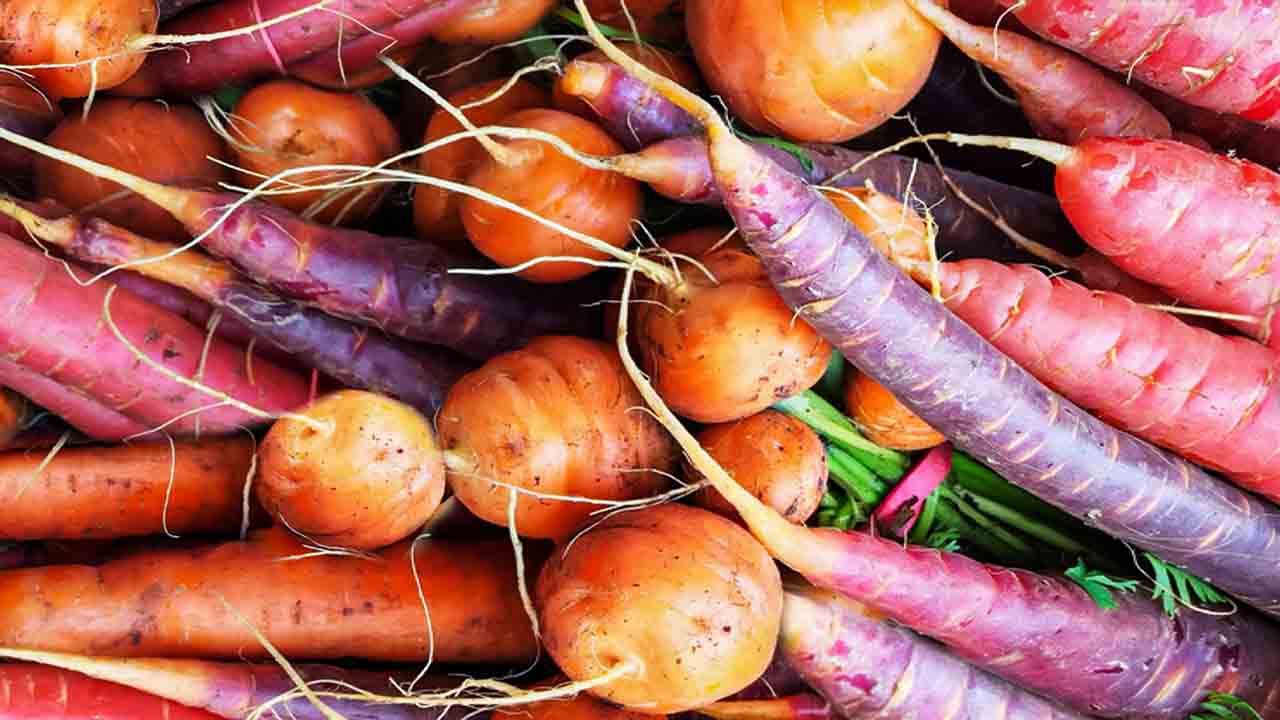
Regarding cultivating a thriving garden, incorporating companion plants can significantly enhance the overall health and productivity of your root vegetables. Root vegetables, such as carrots, radishes, and potatoes, require specific conditions to reach their full potential.
Choosing the right companion plants, such as basil, can provide numerous benefits. Basil, a fragrant herb known for its culinary uses, not only adds flavor to dishes but also acts as a natural pest deterrent. Its strong aroma repels pests like aphids, spider mites, and mosquitoes, protecting your root vegetables from potential harm.
7.Tomatoes
Regarding to cultivating a thriving garden, choosing the right companion plants can make all the difference. Tomatoes, a staple in many home gardens, benefit greatly from strategic plant pairings. One of the best companions for tomatoes is basil. This aromatic herb not only adds a burst of flavor to culinary dishes but also provides numerous benefits to its neighboring tomato plants.
Basil and tomatoes have a symbiotic relationship that promotes healthy growth and enhances the overall flavor of the tomatoes. The strong scent of basil acts as a natural repellent to insects that commonly prey on tomato plants, such as aphids and whiteflies. By planting basil alongside tomatoes, gardeners can effectively deter these pests without resorting to harmful pesticides.
8.Chives
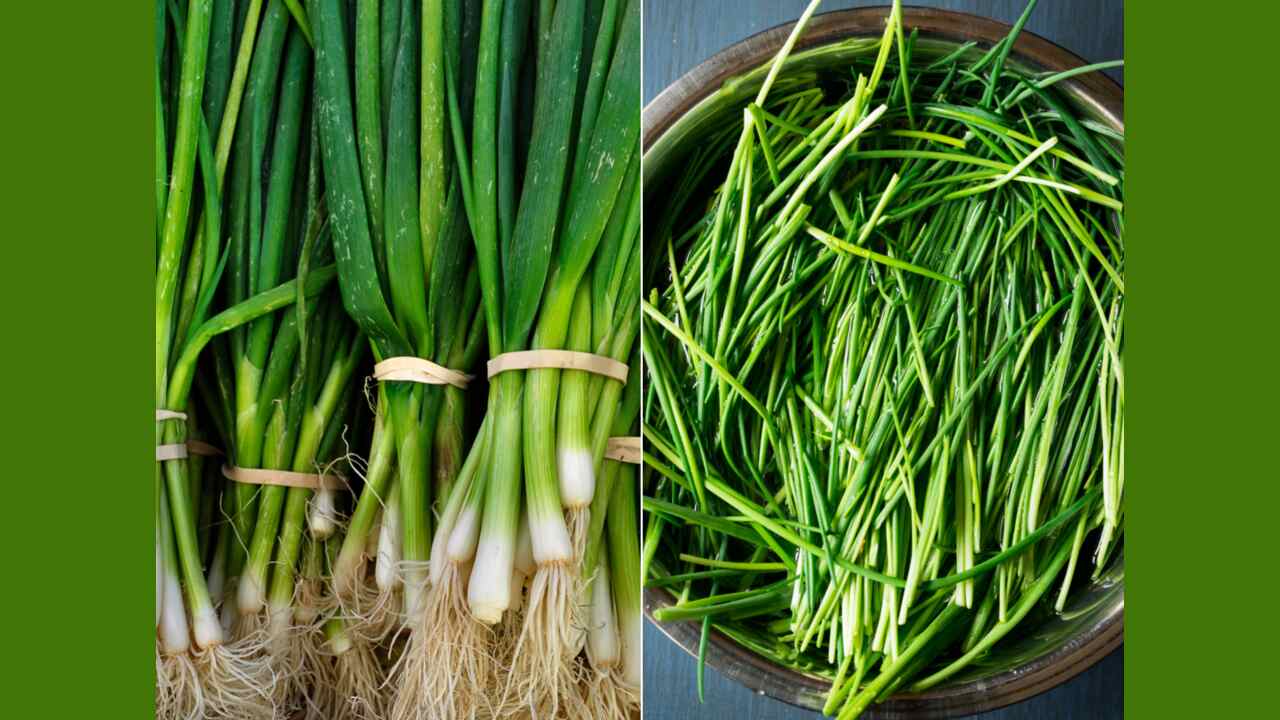
When planning your garden, it is essential to consider companion planting to maximize the health and productivity of your plants. One excellent companion for basil is chives. Chives are a versatile herb that not only enhances the flavor of various dishes. But also offers numerous benefits when planted alongside basil.
Chives belong to the Allium family, which includes onions and garlic. This means that they possess natural pest-repellent properties, deterring pests such as aphids, spider mites, and Japanese beetles that can damage basil plants. Additionally, chives have a unique scent that helps repel insects and prevent diseases, providing a natural form of protection for your garden.
9.Chamomile
When planning your garden, it is important to consider the compatibility of different plants. As this can greatly affect their growth and overall health. One such beneficial pairing is the combination of chamomile and basil. Chamomile, known for its calming properties and delicate white flowers, is a versatile herb that thrives in a variety of climates.
It is often used in teas and skincare products due to its soothing effects. Basil, on the other hand, is a popular culinary herb known for its strong aroma and flavor. It adds a delightful twist to many dishes, making it a staple in any kitchen garden.
10.Oregano

When planning your garden layout, it’s important to consider companion planting to maximize the health and productivity of your plants. One such beneficial pairing is oregano and basil. Oregano is a popular herb known for its earthy and slightly bitter flavor.
It is not only a delicious addition to culinary dishes but also a great companion for basil. Oregano and basil share similar growth habits and environmental preferences, making them ideal partners in the garden.
Both herbs thrive in full sun and well-drained soil, making them compatible in terms of their basic needs. Moreover, oregano’s strong scent acts as a natural deterrent for pests that may harm basil plants. The aromatic compounds released by oregano help repel insects, keeping your basil plants safe and healthy.
11.Garlic
When planning your garden, it is important to consider which plants will thrive in harmony with each other. One such example is the pairing of garlic and basil. Garlic is known for its pungent aroma and numerous health benefits. You can greatly benefit from the presence of basil in the garden.
Basil, with its fragrant leaves and versatile uses in culinary dishes, acts as a natural companion to garlic, providing both aesthetic appeal and practical benefits. Garlic and basil share a mutual advantage when planted together. Garlic acts as a natural pest deterrent, repelling insects that may harm both plants.
Basil, on the other hand, attracts beneficial insects such as bees and butterflies, aiding in the pollination process and promoting a healthy garden ecosystem. The strong scent of garlic can also help mask the scent of more vulnerable plants, providing them with an added layer of protection from pests.
12.Asparagus

Regarding to gardening, choosing the right companion plants can greatly enhance the growth and flavor of your vegetables. One such vegetable that benefits from the presence of certain companion plants is asparagus. Asparagus, known for its delicate, spear-like shoots, is a popular choice among gardeners seeking to add a touch of elegance to their vegetable patches.
To ensure optimal growth and flavor, it is important to select the basil companion plants for your garden. Basil, with its aromatic leaves and vibrant flavors, is a perfect companion for asparagus. Not only does basil add a delightful scent to the garden.
But it also helps repel certain pests that can potentially harm the asparagus crop. The strong aroma of basil acts as a natural deterrent to insects such as aphids and mosquitoes. Keeping them at bay and protecting the asparagus plants.
13.Parsnip
When planning your garden, it is important to consider companion planting as a strategy to maximize the health and productivity of your plants. One such beneficial pairing is that of parsnips and basil. Parsnips, a root vegetable known for their sweet and nutty flavor, thrive when planted alongside basil, an aromatic herb with a myriad of culinary uses.
The combination of these two plants not only enhances the flavor of your dishes but also promotes better growth and disease resistance. Basil serves as an excellent companion for parsnips due to its pest-repellent properties. The strong aroma of basil acts as a natural deterrent to pests such as aphids and spider mites, effectively protecting parsnip plants from infestation.
What Are The Benefits Of Companion Planting?
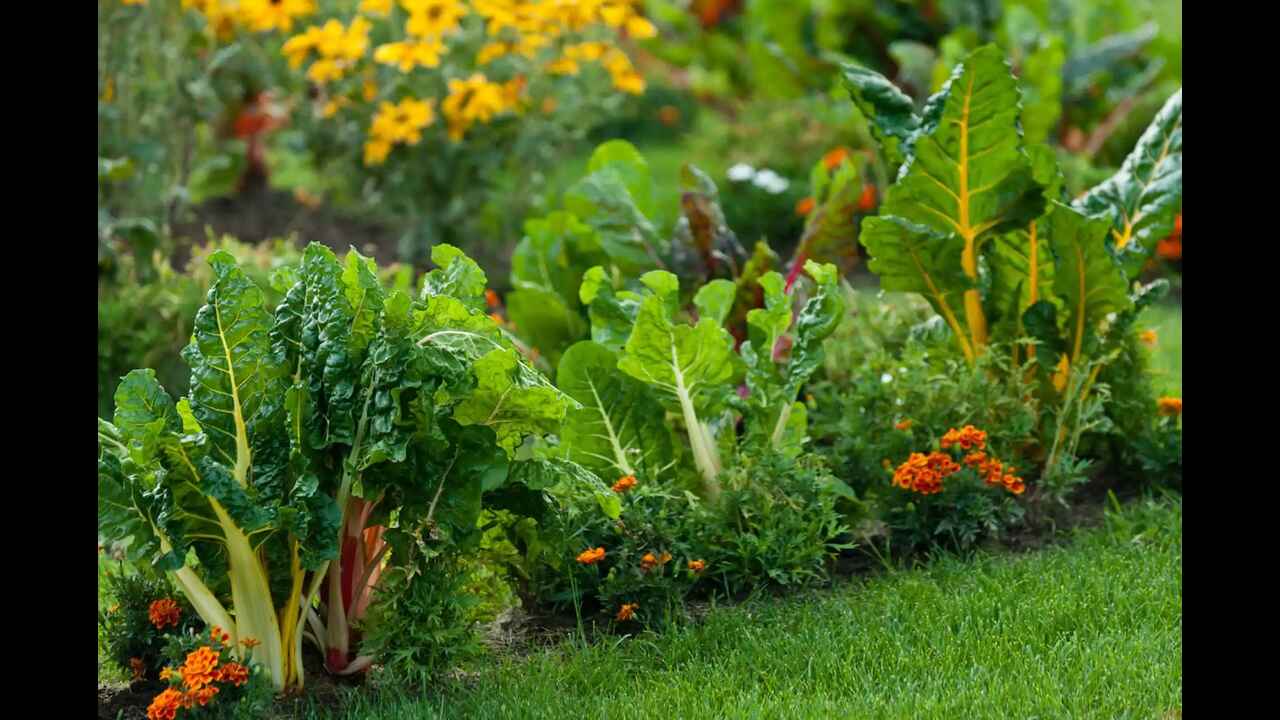
Understanding the benefits of companion planting is essential for any gardener. Companion planting refers to the practice of strategically planting different crops together in order to enhance their growth and overall health. By doing so, gardeners can create a symbiotic relationship between plants. They are maximizing their potential and minimizing the need for chemical interventions.
- Increased Biodiversity: Companion planting allows for a diverse range of plant species to coexist in a garden, promoting a healthier ecosystem.
- Pest Control: Certain plants can repel pests or attract beneficial insects that prey on pests, reducing the need for chemical pesticides.
- Improved Pollination: Some companion plants attract pollinators like bees and butterflies, increasing the chances of successful pollination and higher crop yields.
- Enhanced Nutrient Uptake: Certain plant combinations can help improve soil fertility by fixing nitrogen or unlocking nutrients, benefiting neighboring plants.
- Weed Suppression: Companion plants can help suppress weeds by shading the soil, inhibiting weed growth, and reducing the need for manual weeding.
- Space Optimization: Companion planting can maximize the use of limited garden space by intercropping compatible plants that complement each other’s growth habits.
- Disease Prevention: Some plant combinations can help deter or reduce the spread of diseases by creating a less favorable environment for pathogens.
- Aesthetically Pleasing: Companion planting can create visually appealing
Conclusion:
Ultimately, incorporating companion plants into your garden, particularly those that pair well with basil, is a smart and beneficial choice. Not only do they enhance the growth and flavor of your basil plants. But they also attract beneficial insects and deter pests from the classic combination of tomatoes and basil to the lesser-known pairing of basil and marigolds.
These companion plants will not only make your garden more visually appealing but also help your basil thrive. So, consider incorporating these basil companion plants into your garden and enjoy a bountiful and healthy harvest. If you read the above outline properly, we hope you now understand the best basil companion plants for your garden.
FAQ:
1.What Are Some Of The Best Companion Plants To Grow With Basil In Your Garden?
Ans: Some great companion plants for basil include tomatoes, peppers, marigolds, and oregano. These plants not only enhance the flavor of basil but also help deter pests.
2.Why Is Planting Basil With These Companion Plants Beneficial?
Ans: Planting basil with tomatoes and peppers can help repel pests and enhance their flavors. Oregano can deter harmful insects, while marigolds attract beneficial pollinators.
3.How Does Planting Basil With These Companion Plants Promote A Healthy Garden?
Ans: Basil’s aromatic properties can help mask the scent of nearby plants, making it difficult for pests to locate them. This, in turn, promotes a healthier garden environment.
4.Are There Any Plants That Should Not Be Planted Alongside Basil?
Ans: It is generally advisable to avoid planting basil near cabbage, broccoli, or other cruciferous vegetables as they can inhibit each other’s growth. Planting basil near cabbage, broccoli, or other cruciferous vegetables is not recommended.
5.How Does Growing Basil With Companion Plants Benefit Your Garden?
Ans: Growing basil with companion plants promotes healthy growth and improves overall garden productivity. Basil’s strong aroma can repel pests, while its companions attract beneficial insects and provide natural shade.

